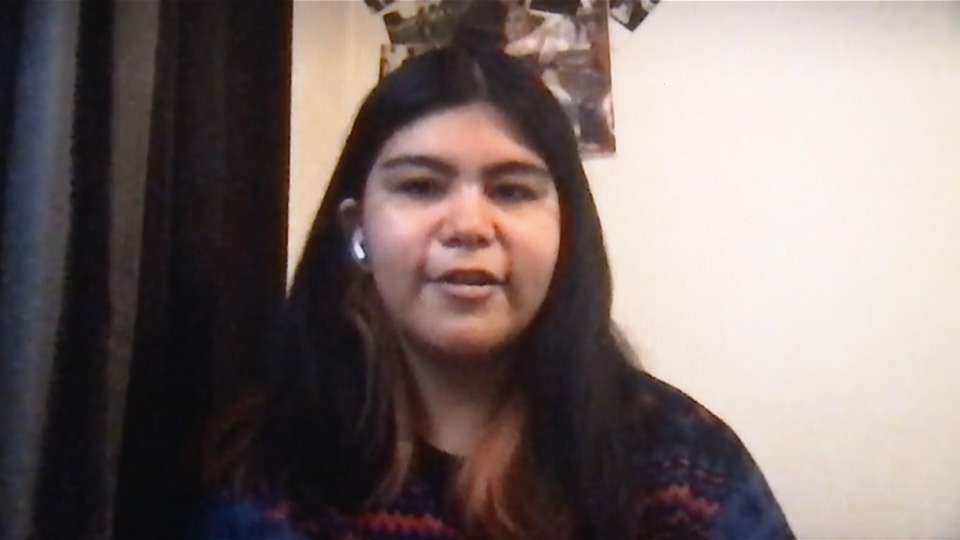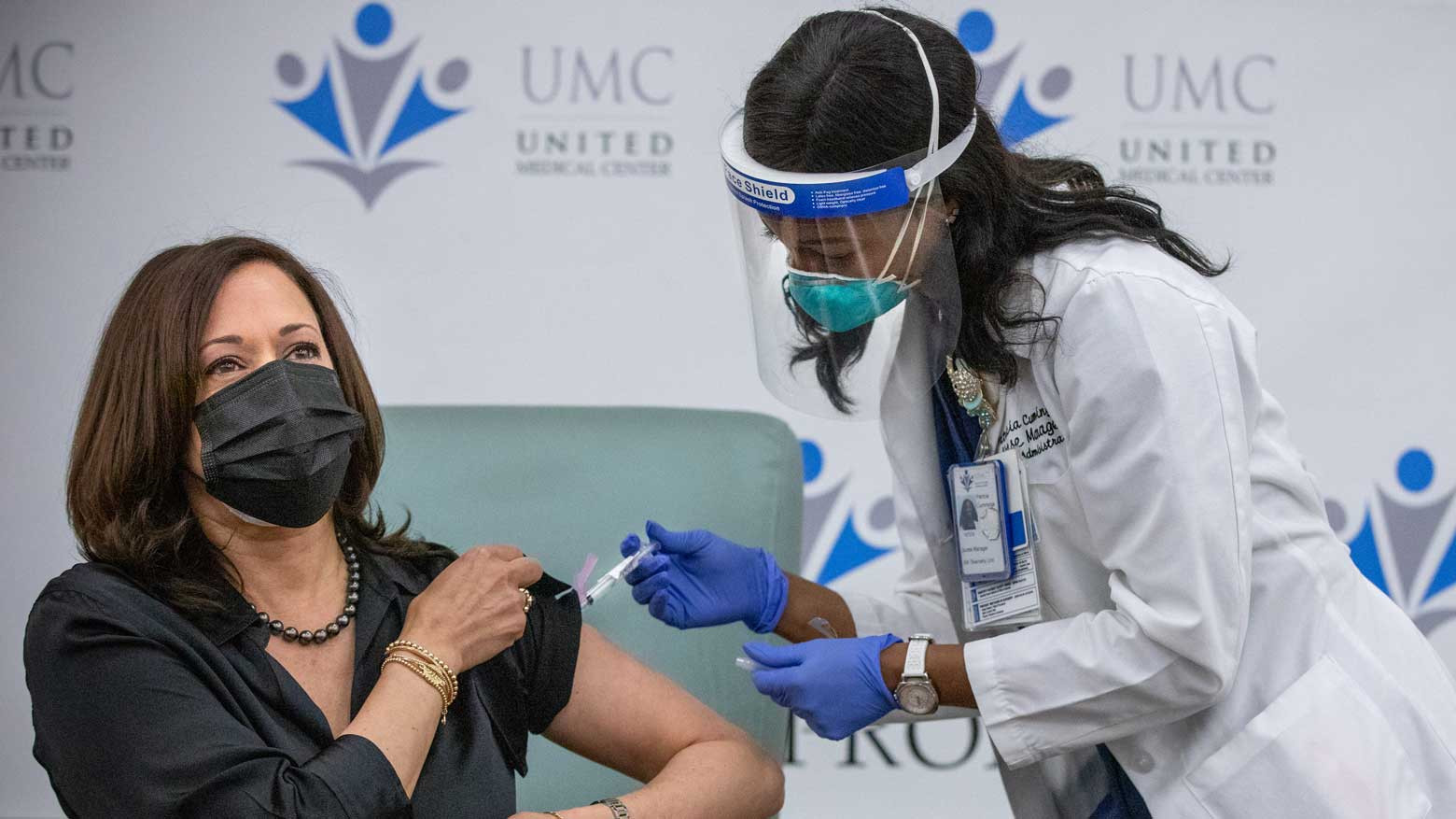Gabriela Ramirez works for Behavior Respite In-Action, or BRIA, an organization that provides services to those impacted by autism and other developmental disabilities. Her job means she is classified as an essential worker.
She lives in Los Angeles where the Latino community has been hit hard by the pandemic, with an infection rate more than double that among white residents, according to the California Department of Public Health. Ramirez plans to get the vaccine, but says she and her family harbor some doubts about its safety.
"We've seen that a lot out in society where a black or brown person gets mistreated in healthcare or with the government," Ramirez says. "It makes us kind of mistrust it because we're also a minority. So it can happen to us, too."
These concerns are shared among black and Latino communities around the country, where distrust of the federal government is widespread. A national poll sponsored by civil rights group NAACP in conjunction with other organizations found that just 14% of black people and 34% of Latinos trust the vaccine.
"The distrust of the healthcare system for minority communities in particular is not limited to the Covid-19 vaccination," says Dr. Tamara Chambers, a head and neck surgeon at LAC+USC Medical Center and an assistant professor at the University of Southern California. "Stories of Henrietta Lacks, stories of the Tuskegee experiments, stories of even the forced sterilization of Latino communities, those are not even a generation old. So those are the same barriers that have created a distrust of the medical system, not only for routine medical care, but it's showing its head here during the Covid pandemic, which is really unfortunate."
Chambers is calling for public education. "The Pfizer vaccination we've seen is about 94.5% efficacious. They've actually tried it in many different patient populations, including minority populations, which is really important to make sure that the public knows that there is a safety profile."

Adding to public distrust is rampant misinformation about the vaccine that is spreading online. Ramirez says she has seen many examples of this on Twitter.
Imran Ahmed is chief executive of the Center for Countering Digital Hate, an international not-for-profit NGO that aims to stop online hate and misinformation. He claims social media companies are not doing enough to stop the flow of falsehoods.
"We can see the impact in the growing vaccine hesitancies, as it's called, among the general population," says Ahmed. "That means people who aren't necessarily saying they're not going to take the vaccine, but they're just not sure anymore."
Leaders, health officials, and communities are trying to build trust in the vaccine. Politicians, including Kamala Harris and Mike Pence, have received their shots on camera to encourage others.
According to an NPR interview with Dr Anthony Fauci, the US government's senior infectious diseases official, early stages of herd immunity against the coronavirus could emerge by late spring, or summer, depending on the vaccine take-up rate.
"I would say 75 to 85% would have to get vaccinated if you want to have that blanket of herd immunity," says Fauci.
The US Centers for Disease Control and Prevention says about 27.7 million doses have been administered around the country as of January 12. But some people, like Ramirez, remain hesitant.
"I'm like in the middle," Ramirez says. "Because of everything, everyone's saying about the vaccine, I'm like, 'Okay, maybe there is something wrong with it', but I want to get it just so that Covid could be over."

